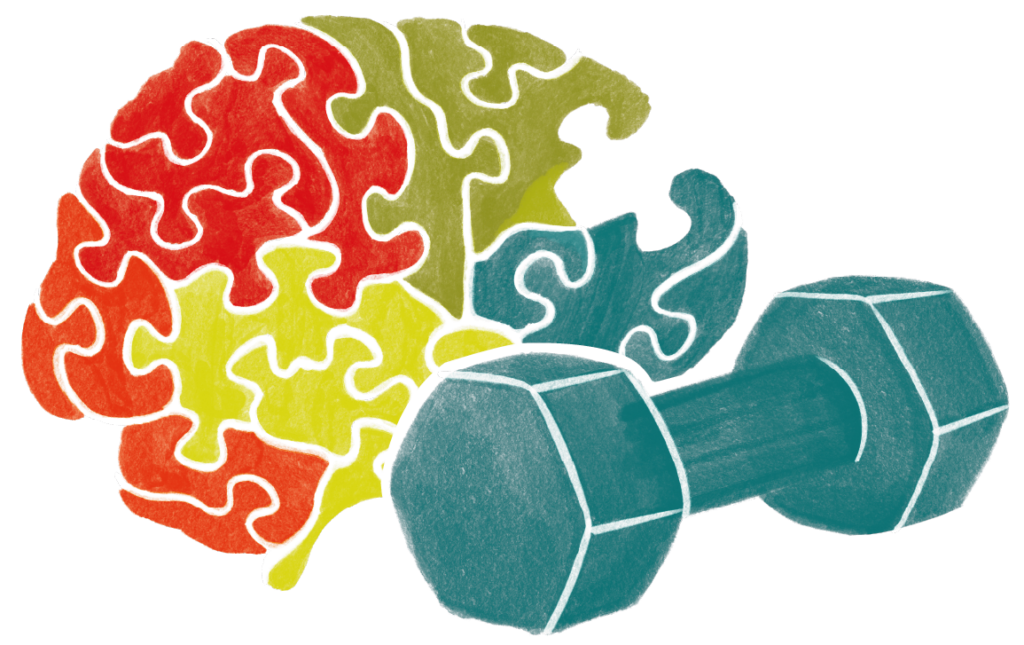Brain gym
These are some simple tips for making day-to-day tasks a bit easier.

When you’re trying to concentrate on something, try taking away distractions, like TV or noises from outside.
Get into a routine of keeping things in the same place and doing things at the same time each day. This will help make these details easier to remember.
Create reminders or alarms on your devices for appointments or specific times, like taking medicines.
Keeping a notebook for important information or conversations can help store things you need to know in one place.
When you need to understand something you are reading, try reading out loud to yourself or rephrasing it in your own words.
Friends and family often want to help you cope by doing certain tasks for you.
Ask them to help you do it yourself, instead of doing it for you. This will help your confidence and independence.
Use a dosette box to organise the medicines you have to take each day or speak to your doctor or pharmacist about arranging blister packs for your daily medication.
N.B A blister pack is like a dosette box but already arranged for you.
Making small changes to your lifestyle can make big differences. Take a look at the changes you can make to help support and protect your thinking and memory here
Managing symptoms and finding strategies to lessen the impact memory and thinking problems have on your life is a really important step in being able to get on with living well with these types of problems. This type of support is often called cognitive rehabilitation.
Our colleagues in Canada have recently developed a cognitive rehabilitation booklet for people living with HIV who experience problems with memory and thinking.
The booklet contains a short self-assessment along with lots of strategies, based on research, to improve your memory, concentration, planning and organisation.
We really recommended you take a look and see if there is anything helpful you could apply to your routine and daily activities.
Support your mental health –
NHS 5 Steps To Mental Wellbeing
Exercise for physical and cognitive wellbeing
Couch Potatoes For Cognition – Loughborough University
How to fall asleep faster and sleep better
NHS Every Mind Matters – Sleep
Dealing with life’s challenges